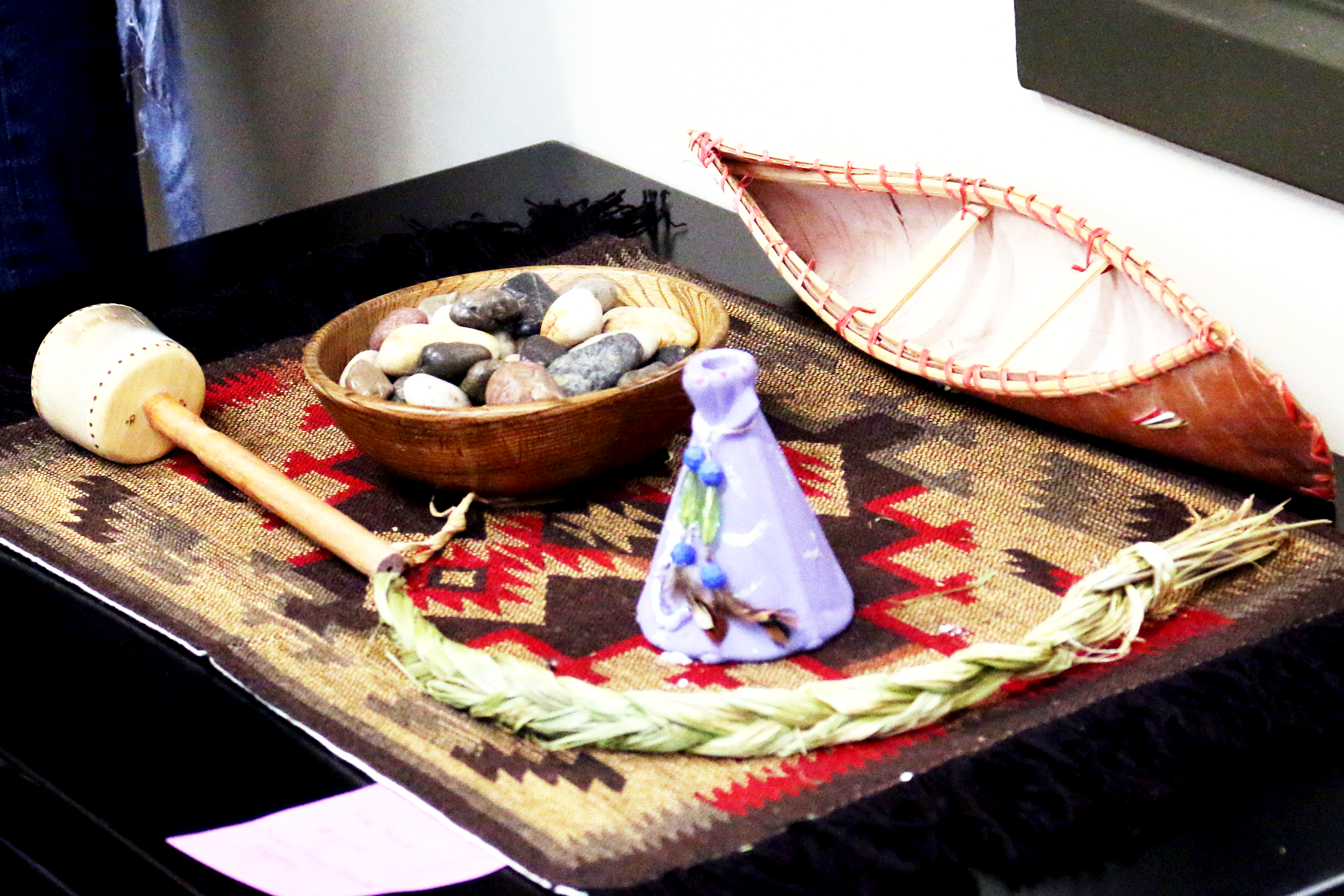STORY AND PHOTOS BY MADDY SOMMERVILLE
If you have ever find yourself in B-Wing when the strong scent of sage hangs in the air, it means the Aboriginal Initiatives Office is open and they are ready for questions.
The sage is used in a cleansing technique used by Native Americans to purify. The burning of the herbs helps with emotional, psychic and spiritual purification. It’s a ceremonial way to cleanse a person, a place or an object of the negative energies or influences that plague it.
Hoping that students will follow their noses, Paula Laing has recently joined the team at the office. She is a Mohawk and a member of the Turtle Clan, which is part of the bigger Six Nations. Her knowledge of First Nations traditions and people is a valuable asset.
She says the goal of her organization is to help Aboriginal students to get support. “That’s our focus to provide support to those who need it and to provide a network,” she said.
Her first few days have been eventful, nine students have already come to identify themselves as First Nations.
“It is different culturally if you’re from a small community or from a reserve and we have an international student office here,” said Laing. “We’re offering people support and the same opportunities as the people who haven’t been in this situation before.”
A majority of First Nations’ students are first timers to post secondary education as well.
Laing has put up a sign asking students to come into the office to ask questions about what was happening.
“My experience so far, burning this sage. I’ve had a very mixed reaction,” she said “It’s a fishbowl in here, people are looking in and they’re smelling something and they are having an opinion and they are voicing it.”
As well as being an office to provide support, the Aboriginal Initiatives also provides education. Those who are curious, or even those who just want to come out in support, can drop by the office so that they may learn about First Nations’ traditions and culture.
“We hope people will come with an open mind so they will learn, this is a history that needs to be told,” she said.
Ron McLester is the director and the special advisor for the Aboriginal Initiatives Office; he is also a member of the Turtle Clan.
“I think the biggest thing whether it’s professional or personal is to leverage our collective experience when it comes to working with and servicing aboriginal learners, as well as the broader institution.” he said.
“I think from a more personal lens, we’re here to start building a community, identifying a community, supporting a community and that’s just not the aboriginal learners even though we’re focused with them and that’s our priority but the broader campus as well.”
Elizabeth Gray, a Mi’kmaq woman and manager of the Aboriginal Initiatives Office, hopes to foster understanding about native culture. “This is a place where indigenous knowledge will come to the college and it is also a little piece of home for students.”
Last year Gray hosted the film Bridgewalkers at Sheridan. “That was very symbolic in a number of ways. When I first saw that film screened and I was talking to one of the elders, Dave Courchene, he said ‘Oh you’re a bridge walker’ because I was going between these two cultures and between the students and this institution and between this community and that community and that’s very true for me.”
They do a lot of building bridges at the office. “But to the broader community we get all kinds of people, who come in the door and it’s an opportunity to for us to know each other and for me that’s very gratifying. Its not just giving up something, we learn from it. We gain from it, we benefit from that experience.”
The Aboriginal Initiatives Office will be open every day. Pop your head in and don’t be afraid to ask questions, says the team at Aboriginal Initiatives Office.
